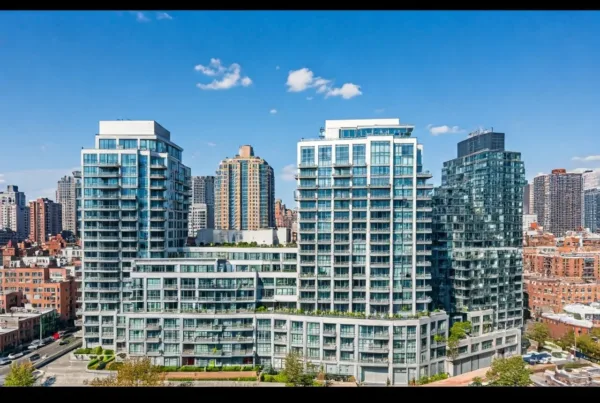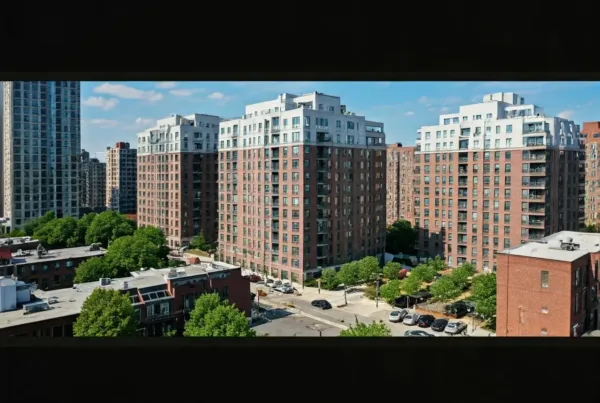Unlock the mystery of sponsor units in NYC – find out what they are and why they’re important in real estate.
Table of Contents
Have you ever wondered what a sponsor unit is? In New York City (NYC), many people live in apartments and condos, and some of these places are called sponsor units. Understanding what a sponsor unit is can help you make better choices if you ever want to buy one.
This blog will explain what a sponsor unit means, especially in the awesome city of NYC. We will dive into why these units are special, how they differ from regular apartments and condos, and what makes them easier to buy in some cases. You’ll learn about topics, like sponsor units not needing board approval and how to find a sponsor unit for sale.
What We’ll Learn
Throughout this blog, we will cover some exciting things! First, we will define what a sponsor unit is, breaking down its meaning in a way that’s easy to understand. Next, we will look at how sponsor units work in condos and why they exist. Then we’ll explore the perks of buying a sponsor unit, which often don’t require any board approval in NYC! Finally, we will share some tips on how to find a sponsor unit for sale in NYC. Get ready to learn about sponsor units and what they can mean for people looking for a new home!
What is a Sponsor Unit?
Simple Definition
A sponsor unit is a special kind of apartment. It is owned by the builder or developer of the building. When someone makes a new apartment building, they might decide to keep a few of the apartments for themselves. These kept apartments are called sponsor units. So, when we ask, “what is a sponsor unit?”, we are really talking about apartments that the original builders still own.
Why They Exist
Sponsor units exist for a few reasons. First, sometimes the developer wants to keep some apartments to sell later. This can help them make more money after the building is done. Also, by keeping some units, the developer can have a say in the building’s management. They may want to make sure everything runs smoothly, even after they have finished building. So, the sponsor unit meaning is linked to the smart choices builders make about their projects.
Sponsor Units in Condos
In New York City, a sponsor unit condo is a special kind of apartment that is different from regular condos. These units are owned by the original builder or developer of the building. This makes them unique in a few ways, and it’s important to understand how they work.
Difference from Regular Units
Sponsor units are different from regular condo units in a few important ways. For one, regular units are usually sold by owners who have lived there, while sponsor units are sold directly by the builder. This means the sponsor unit hasn’t changed hands before. Regular condo owners are part of the condo association, but because the developer owns the sponsor unit, they have different responsibilities. They do not always follow the same rules as regular owners.
Ownership and Control
The entity that owns sponsor units has a lot of control over the condo association. Since the developer is still involved, they might make key decisions about the building. This could affect things like how the property is managed or what improvements are made. Meanwhile, regular owners of condos typically have a say in these decisions through votes. So, if you’re thinking about a sponsor unit condo, it’s good to know the developer may still have a big say in how things operate!
No Board Approval Needed
When you want to buy a home in a condo or co-op, there’s usually a group of people called a board that has to say yes before you can move in. This board checks a lot of things about buyers to make sure they’re a good fit for the community. But with a sponsor unit no board approval nyc, you can skip that step altogether!
What is a Board?
A condo or co-op board is a group of residents who help manage the building. They make rules, decide about repairs, and choose who gets to live there. It’s kind of like having a class president and their helpers in a school. They work to keep everything running smoothly but can also make buying a home more complicated since they must approve any new owner.
Skipping the Board Approval
One of the best things about buying a sponsor unit is that you don’t need to wait for board approval! This can save you a lot of time and stress. Imagine wanting to move into a new place but having to wait for a group of people to decide if you can live there. With sponsor units, you can simply buy the unit and move in right away! This can be really helpful for people who need to move quickly or want to avoid extra hassle. Plus, it gives buyers more freedom and choices when looking for a home.
| Topic | Description |
|---|---|
| What is a Sponsor Unit? | A Sponsor Unit in NYC is a unit in a condominium or cooperative building that is owned by the developer or sponsor of the building. These units are usually designated for sale to the public and may have certain privileges or restrictions compared to other units in the building. |
| Benefits of Buying a Sponsor Unit | Buying a Sponsor Unit can provide buyers with the opportunity to purchase a newly constructed unit before it hits the market, potentially at a discounted price. Additionally, Sponsor Units may have unique features or incentives to attract buyers. |
| Restrictions on Sponsor Units | Sponsor Units may have restrictions on financing, subletting, or resale that are different from regular units in the building. Buyers should carefully review the offering plan and any restrictions before purchasing a Sponsor Unit. |
| How to Identify a Sponsor Unit | Sponsor Units are typically listed as such in the building’s offering plan or sales materials. Buyers can also look for units with unique features, incentives, or developer ownership as indicators of a Sponsor Unit. |
| Considerations When Buying a Sponsor Unit | Buyers should carefully review the offering plan, financial stability of the building, and any restrictions on the Sponsor Unit before making a purchase. It is also recommended to work with a real estate attorney familiar with NYC real estate laws. |
Finding Sponsor Units for Sale
Finding a sponsor unit for sale nyc can be exciting! These special apartments offer unique opportunities for buyers, especially in a big city like New York. Let’s explore how to search for them and what you should keep in mind when you’re looking.
Where to Look
To find a sponsor unit for sale, you can start your search online. Many real estate websites list properties, including sponsor units. Websites like Zillow, Realtor.com, or local real estate agency sites are great places to check. You can use filters to narrow down your search by price, location, and even specific features you want.
Another helpful tip is to talk to a real estate agent. They can be your guide! Real estate agents often know where all the sponsor units are located and might even hear about listings before they appear online. They can help you navigate the market and find the right unit for you.
Questions to Ask
Begin your search and start earning cash back!
- What are the costs? Make sure to ask about the price of the unit and if there are any extra fees, like homeowners association fees.
- Are there any restrictions? Find out if there are rules you need to follow, like limits on renting out the unit.
- Who owns the unit? Since these are sponsor units, knowing who manages the building can help you understand the benefits and challenges of living there.
By doing your research and asking these questions, you’ll be better prepared to find and purchase a sponsor unit. Remember, taking the time to learn about your options in the NYC housing market can lead you to a great place to live!
Summary
A sponsor unit is a type of apartment in New York City that is still owned by the original builder, or developer, of a building. This means the developer has not sold this unit to someone else yet. Understanding the sponsor unit meaning helps you recognize them when you see them for sale. In NYC, these units are often found in condominiums, making the term sponsor unit NYC very important for anyone interested in apartments in that area.
Sponsor units offer some unique advantages. One of the biggest benefits is that when you buy a sponsor unit, you usually don’t need any board approval. This means you can skip a process that often makes buying an apartment more complicated. This is often referred to as sponsor unit no board approval NYC. It makes the buying process much easier and faster, which is great for buyers.
Lastly, finding a sponsor unit for sale NYC is not too hard. You can look on various real estate websites or ask a real estate agent for help. It’s important to ask the right questions while searching for these units, including things like costs and any special rules that might come with them. Overall, knowing what a sponsor unit is and how they work can help you navigate the exciting world of NYC real estate!
FAQs
What’s the difference between a sponsor unit and a regular unit?
A sponsor unit is special because it is owned by the original builder or developer of the building. This means they have control over these apartments. In contrast, regular units are owned by people who buy them after the building is finished. Also, when you buy a sponsor unit in NYC, you often don’t need to get approval from a board. This is called “sponsor unit no board approval NYC.” Regular units, however, usually require approval from a condo or co-op board before a sale can happen, which can take more time.
Are sponsor units more expensive?
Sometimes, yes. Sponsor units can be priced differently than regular units because they are often sold directly by the builder. However, this isn’t always the case. The overall cost can depend on things like the location of the unit and the features of the building. It’s important to do some research and compare prices to see what works best for your budget.
How do I know if a unit is a sponsor unit?
To figure out if a unit is a sponsor unit, you can check property listings that mention “sponsor unit for sale NYC.” You can also ask your real estate agent if the unit is a sponsor unit. They’re trained to spot the differences. Additionally, if the listing mentions that there’s no need for board approval, it’s likely a sponsor unit.







